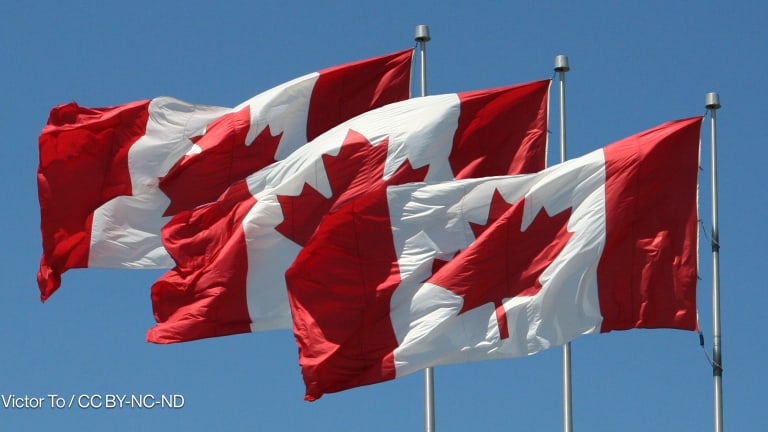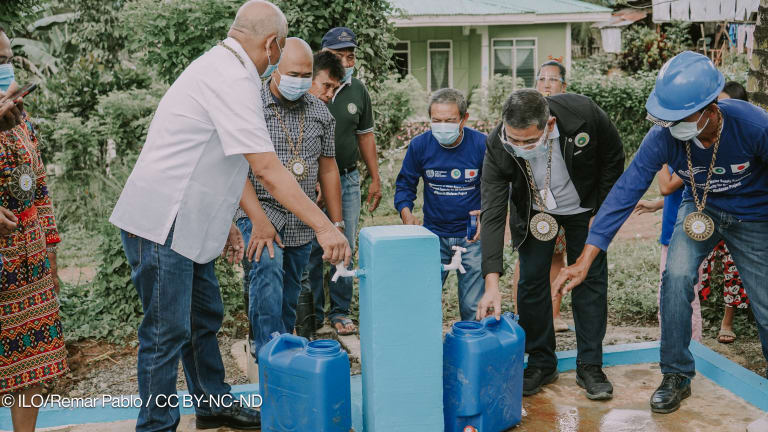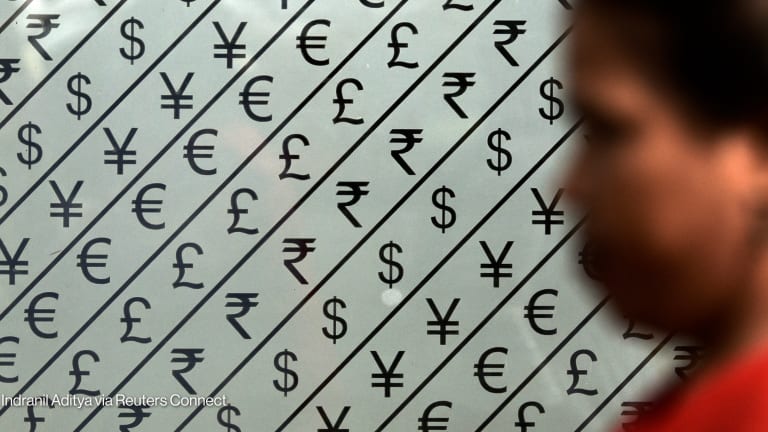Trends in World Bank European awards
Between 2017 and 2020, European contractors received the second-most funding from World Bank contracts. Devex looks into the trends behind the awards.
With a total of $9.4 billion for 2,967 contracts, European contractors received the second-most funding from World Bank contracts between 2017 and 2020, following those in East Asia and the Pacific with $13.5 billion. As part of the World Bank contractors series, Devex dug into the data for suppliers from the region. Read on to learn about where contractors were based and the contracts they were awarded. For the purposes of this analysis, Turkey and Russia have been included as part of the European continent, together with countries such as Ukraine, Moldova, and Belarus as well as those in the Balkans. Civil works received the lion’s share With $5.8 billion for only 354 contracts disbursed over the 2017-2020 period, civil works accounted for more than half of the funding awarded to European contractors. Turkish, Spanish, and French suppliers dominated this category, receiving a combined $3 billion in contract awards. Overall, the largest award was made in 2018, when civil works received $2.1 billion, or 74% of the total contract funding for the year. Although it ranked second in terms of overall contract amount with $1.7 billion, consultant services accounted for 1,739 contracts, or 59% of the total number awarded to European contractors in the 2017-2020 period. France, the United Kingdom, and Germany were among the top supplier countries for this category, with Tractebel Engineering France, Mott MacDonald, and PSE Engineering GmbH as their top organizations respectively. The majority of projects they implemented were engineering consultancy services for transportation projects. By sector, energy and transportation ranked ahead of the others, winning a combined $6.5 billion over the analyzed period. Among the biggest awards were a $176 million contract given to Onur Group for the repair and construction of Kyiv-Kharkiv-Dovzhanskiy Road in Ukraine and $91 million given to the consortium between ABB and Grupo COBRA for the supply and installation of high-voltage, direct-current converter stations in South Asia. Water and sanitation, health, public administration, environment, and education were also among the bank's priorities, garnering $2.1 billion in total. Global vs. local contracts European suppliers won similar funding amounts within and outside of the continent. Contracts for projects outside of Europe amounted to $5.2 billion — about 56% of the total — with Egypt, Vietnam, Uzbekistan, Ethiopia, and Lebanon receiving the most funding. This included civil works projects in Egypt — such as a $369 million airport development contract awarded to Turkey’s Limak Construction and a $148 million railway contract won by Spain’s Thales España — as well as in Vietnam, with two contracts awarded to France’s VINCI Construction Grands Projets and Spain’s ACCIONA Agua for over $117 million each under the Second Ho Chi Minh City Environmental Sanitation Project in Viet Nam. The rest — $4.1 billion, or about 44% of the total funding — was won by local partners, with Ukraine, Turkey, and Poland topping the list of locations. One of the biggest awards was won by Turkish company IC Ibrahim Cecen Yatirim Holding, with a $570 million contract for design, supply, and installation services related to gas storage. Try out Devex Pro Funding today with a free 5-day trial, and explore funding opportunities from over 850+ sources in addition to our analysis and news content.
With a total of $9.4 billion for 2,967 contracts, European contractors received the second-most funding from World Bank contracts between 2017 and 2020, following those in East Asia and the Pacific with $13.5 billion.
As part of the World Bank contractors series, Devex dug into the data for suppliers from the region. Read on to learn about where contractors were based and the contracts they were awarded.
For the purposes of this analysis, Turkey and Russia have been included as part of the European continent, together with countries such as Ukraine, Moldova, and Belarus as well as those in the Balkans.
This story is forDevex Promembers
Unlock this story now with a 15-day free trial of Devex Pro.
With a Devex Pro subscription you'll get access to deeper analysis and exclusive insights from our reporters and analysts.
Start my free trialRequest a group subscription Printing articles to share with others is a breach of our terms and conditions and copyright policy. Please use the sharing options on the left side of the article. Devex Pro members may share up to 10 articles per month using the Pro share tool ( ).
Janadale Leene Coralde works as a contributing analyst for Devex. Based in Manila she reports on development donors activities and designs funding data visualisations. She has a degree in political economy, specializing in international relations and development, and has previously worked as a researcher for Chemonics, the REID foundation, and the Philippines House of Representatives.
Miguel Tamonan is a Senior Development Analyst at Devex, where he analyzes data from public and private donors to produce content and special reports for Pro and Pro Funding readers. He has a bachelor’s degree in Political Science with a Major in International Relations from the Polytechnic University of the Philippines.









